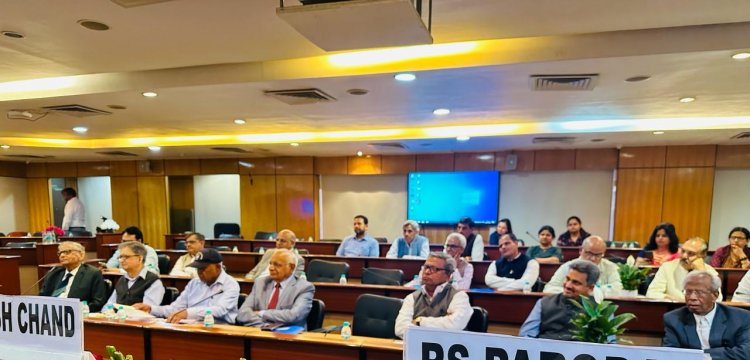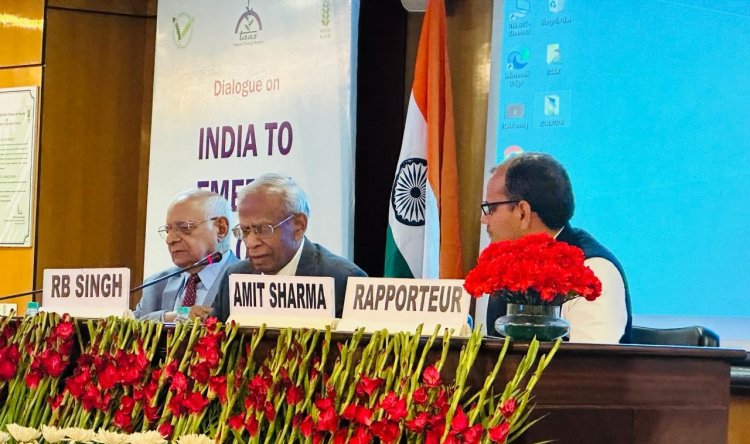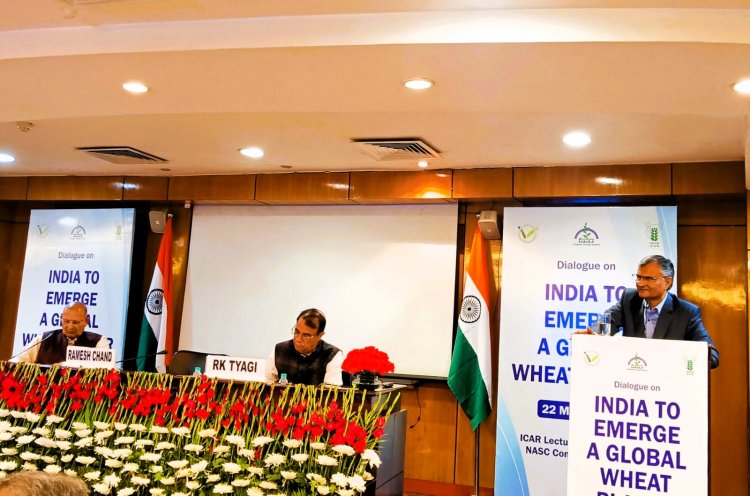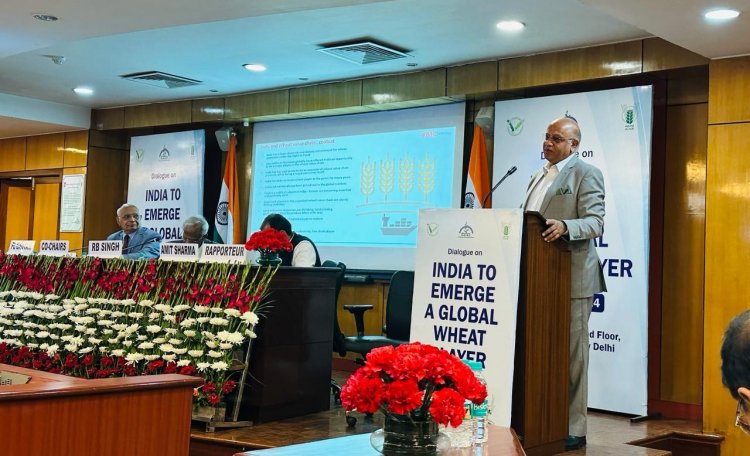Regarding the various possibilities and challenges related to this, a Dialogue on India to Emerge a Global Wheat Player was jointly organized by the Trust for Advancement of Agricultural Sciences (TAAS), the Indian Council of Agricultural Research (ICAR) and the Indian Institute of Wheat and Barley Research (IIWBR). Prominent agricultural scientists, policymakers, agribusiness experts and FPOs representatives participated in the discussion.
On this occasion, Dr RS Paroda, Chairman of TAAS and former Director General of the Indian Council of Agricultural Research, stressed the need for a significant increase in wheat production and productivity given the challenge of the increasing population. He advocated the adoption of innovations and state-of-the-art technology to develop high-yielding varieties of wheat. He said that the country not only has to meet its food requirements but also realize the possibilities of making Indian wheat available at competitive prices in the global market. This can also significantly increase the income of farmers growing wheat in India.

The chief guest of the plenary session of the program, agricultural economist and member of NITI Aayog Dr. Ramesh Chand said that the scenario related to agriculture is changing very fast. There is a lot of potential for the export of wheat as well as wheat products to meet the changing needs. If emphasis is given to value addition, farmers can also get better prices. We have to find alternative ways to help the farmers. At present, due to less surplus of wheat, not much is exported. Indian agriculture has performed better than China in the last ten years. We can increase the production in wheat also.
India is seen as a major producer of wheat in the world and many countries depend on India for food security. In such a situation, if wheat production increases in the country, then there are good possibilities for exports. Dr. Gyanendra Singh, Director of Karnal-based Indian Wheat and Barley Research Institute, suggested encouraging the export of durum wheat which has high protein content. Apart from processing quality, the importance of nutritional quality is also increasing in the matter of exports. There is immense potential to promote the export of wheat for processed food products. For this, special measures will have to be taken to protect wheat from pests and diseases.
During the breakout session of the day-long programme, three groups were formed and the recommendations of these groups were put forward to all the participants. The group's topics were Eco-regional Production Options, Export Options and Way Forward and Quarantine and SPS Considerations. The convenor of the first group was Dr. Gyanendra Singh, Director of IIWBR. The convenor of the second group was Raju Kapoor, Director, Public and Industry Affairs, FMC and the convenor of the third group was JP Singh, Plant Protection Advisor, DPPQS.

Strategies to increase wheat production in the future are likely to require diverse and multiple genetic improvements as well as a shortening of crop growth cycles. At present, wheat is cultivated in about 3.17 crore hectare area in India and the average yield of wheat is 3.5 tonnes per hectare. Wheat productivity has increased by 17.94 percent between 2010-11 and 2021-22. Agricultural scientists believe that if early sowing varieties are adopted in major wheat-producing states like UP, then wheat productivity can be increased to 5.5 to 6 tonnes per hectare. However, increasing wheat productivity will require addressing challenges such as climate change, depleting natural resources, pest and disease patterns and abiotic stresses (heat, drought and salinity).
FMC Director Raju Kapoor believes that at present there is very little surplus wheat for export in India. To promote exports, along with increasing wheat production, export clusters will have to be created where there will be facilities for testing, grading and cleaning of wheat as per global parameters. There is a need to establish regional mapping and wheat export centres to promote exports. Also emphasized stability in trade policy.
Plant Protection Advisor JP Singh said that pest-free production, pest-free areas, pest scanners and effective monitoring systems are important to promote the export of wheat. He also informed about the work and progress being made in this direction. During the discussion, suggestions were received from three expert groups on issues related to eco-regional production, export possibilities and measures and quarantine.
In the discussion, Dr Himanshu Pathak, DG ICAR and Secretary DARE, Dr Bhag Mal, Secretary TAAS, Dr RB Singh, Former President NAAS, Dr PL Gautam, Chancellor RCPAU, MS Saharan, Head Pathology IARI and RK Tyagi senior advisor TAAS and many agricultural scientists, agribusiness experts, FPO representatives and policymakers participated.







